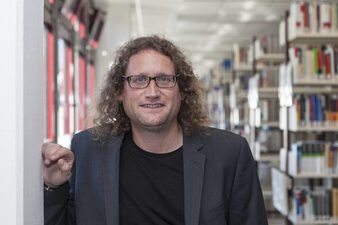COVID-19 consequences for social work
Instead of live on site in South Africa, this time the exchange remained digital. Students on the Social Work study program at Dortmund University of Applied Sciences and Arts felt the effects of the coronavirus pandemic first-hand at the second joint workshop with the University of KwaZulu-Natal and the University of Johannesburg. It therefore made sense to focus on the pandemic and take a closer look at the consequences of COVID-19 for social work and the global social work agenda.
"At the beginning of the crisis, quite a few people hoped that despite the suffering and all the global restrictions, the world could ultimately become fairer, more equal and more ecologically sustainable," says Prof. Dr. Michael Boecker from the Faculty of Applied Social Studies. The crisis also offers opportunities for new cohesion because everyone is equally affected. However, "we can already see that the world is becoming neither fairer nor more equal," concludes Prof. Boecker, who heads the "Internationalization for Building Competences" project at Fachhochschule Dortmund. Countries where social inequality was already high before the pandemic have been hit the hardest. "This is a challenge for social work worldwide," says Prof. Boecker.
At the end of July, students from Fachhochschule Dortmund and the partner universities in South Africa spent a week discussing this intensively in daily web seminars and online discussions. The digital week culminated in a public web debate with Prof. Dr. Ulrich Brand, political scientist at the University of Vienna. His research on the "imperial way of life" has made it onto the SPIEGEL bestseller list. In it, Prof. Dr. Brand comes to the conclusion that more and more people are prepared to help themselves to ecological and social resources elsewhere in order to secure a high standard of living for themselves. These imperial thought patterns have become entrenched.
Breaking imperial thought patterns
For Prof. Boecker, social work is a profession of justice that can counteract this. It enables participation for marginalized groups. "This requires an attitude that accepts other people in their wholeness and dignity and treats them as equals," emphasizes the professor. Colleagues in social work would therefore make a significant contribution to breaking imperial thought patterns.
Prof. Dr. Ulrich Brand underlines the contribution of the individual: "It's not just politics, it's not just economics, it's also about very personal lifestyles." With regard to the consequences of the pandemic, the Viennese professor emphasizes that there were entry points for changes towards more global justice: for example, linking climate targets to state aid for companies. Not everyone has seized this opportunity. At the same time, "now is also an opportunity to talk about systemically relevant sectors," said Prof. Dr. Brand. Sometimes these sectors need to be redefined, especially with regard to social professions.
"When I see that my colleagues in the various fields of social work are working for their target groups on a daily basis during this crisis, it makes me proud first and foremost," says Prof. Dr. Boecker. There also seems to be a renewed interest in social professions as a result of the pandemic. Michael Boecker: "Whether this will actually have a lasting effect depends on how social professions are valued and remunerated in the future."
Background: The "Internationalization for Building Competences" project
The digital workshop "Aftermath of the Covid-19-Pandemic in light of the Global Agenda of Social Work" is part of the joint project "Internationalization for Building Competences" between the University of KwaZulu-Natal (South Africa) and Fachhochschule Dortmund. The project is scheduled to run for four years and is funded by the German Academic Exchange Service (DAAD). One of the aims of the project is to set up a practice office in the South African city of Durban in order to facilitate stronger networking between science and practice. In addition, both universities are working on joint events and an intensive exchange between students. The project should not only contribute to the internationalization of teaching, but also facilitate further cooperation partnerships with the University of KwaZulu-Natal.
Prof. Michael Boecker, Dr.
Appointments can be arranged at short notice by e-mail

